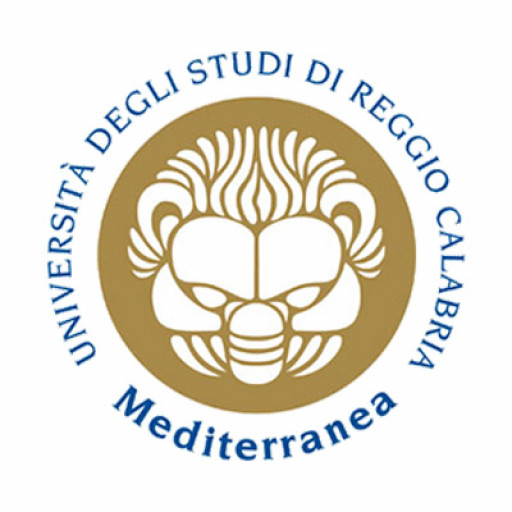Photos of university
Forestry Science at the University of Canterbury offers a comprehensive and forward-looking education designed to equip students with the knowledge and skills necessary to address global and local environmental challenges. This programme provides a multidisciplinary approach, integrating principles from biology, ecology, environmental science, and resource management to prepare graduates for diverse careers in forestry, conservation, and sustainable land use. Students will engage in both theoretical learning and practical applications through laboratory work, field studies, and industry placements. The curriculum covers essential topics such as forest ecology, silviculture, forest management, forest health, and sustainable forestry practices, ensuring graduates are well-versed in the science and practices that underpin healthy and productive forest ecosystems. Emphasizing sustainability and the responsible utilization of forest resources, the programme aims to foster a deep understanding of environmental conservation and the social and economic factors influencing forest industries. Researchers and industry experts contribute to the teaching, ensuring that the content remains relevant and aligned with current trends and innovations in forestry. Throughout the course, students develop critical thinking, problem-solving, and communication skills necessary for effective leadership in forestry-related sectors. The programme also offers opportunities for specialization in areas such as forest ecology, wood science, and forest policy, catering to diverse interests and career pathways. Graduates of Forestry Science will be prepared to work in roles such as forest managers, conservation officers, environmental consultants, and researchers, contributing positively to sustainable forest management and environmental stewardship. With a strong foundation built on scientific principles and practical experience, students are ready to meet the challenges of managing forest resources in a changing world while promoting biodiversity, resilience, and sustainable development.
Qualification structure and duration
The BForSc requires a total of 480 points over four years. The first year provides a substantial base in pure science which is necessary for the professional study of Forestry Science.
Entry requirements
Admission to UC with University Entrance, or equivalent, is required to enrol for a Bachelor's degree. Domestic applicants over 20 who do not hold University Entrance, or equivalent, may gain admission by providing evidence of their ability to complete tertiary study successfully. For information on gaining admission to UC please see how to apply for undergraduate qualifications.
You are also required to meet UC’s English language requirements.
Recommended preparation
The BForSc is open to all students who gain entry to the University. It is recommended that prospective students take NCEA Level 3 biology and maths (including statistics and probability) – or the IB/Cambridge equivalent.
If you have not studied Year 12 chemistry or Year 13 statistics, or if you feel you have a weak background in these subjects, you should consider enrolling in a Headstart preparatory course over summer.
Fast-track option
You may be able to fast-track your degree and gain direct entry to the second year if you have excellent Year 13 results or a New Zealand Certificate in Science with outstanding merit. It is possible to gain exemption for parts of the Forestry Examinations with a Bachelor of Science (BSc) or a New Zealand Diploma in Forestry with outstanding merit.
The Forestry Science programme at the University of Canterbury offers students a comprehensive understanding of sustainable forest management, ecology, conservation, and the application of scientific principles to forestry practices. Financing studies for this programme typically involve a combination of domestic and international student tuition fees, scholarships, bursaries, government funding, student loans, and external sponsorships. Domestic students enrolled in the undergraduate or postgraduate forestry programmes are subject to the New Zealand Government's tuition fee policies, which are subject to annual adjustments. International students pay higher fees, which are set annually and are published on the university's official website.
The university provides various scholarships aimed at supporting students in forestry-related disciplines, including merit-based awards, need-based grants, and specific funding for Māori and Pasifika students. These scholarships can significantly reduce the financial burden of pursuing a forestry degree. Additionally, the university collaborates with industry partners and government agencies to provide internships, research funding, and project-based financial support for students engaging in forestry research or applied projects.
Students are also encouraged to explore external funding sources, including government student loans available through the New Zealand StudyLink scheme, as well as private scholarships and sponsorship programs from forestry industry firms and environmental organizations. Some students may qualify for part-time work opportunities on campus or within the local forestry sector to help cover living costs.
The total cost of studies varies depending on whether the student is domestic or international, with tuition fees comprising the bulk of the expenses. Living costs, including accommodation, food, transport, and study materials, should also be budgeted for by students. The university offers financial advice and planning services to help students manage their expenditure and make informed decisions about funding options. Overall, financial support structures are designed to make forestry education accessible while encouraging the development of future forestry professionals committed to sustainable and environmentally responsible practices.
Forestry Science at the University of Canterbury is a comprehensive programme designed to equip students with a deep understanding of the management, conservation, and sustainable use of forest ecosystems. The programme offers a multidisciplinary approach, integrating biological, ecological, economic, and social aspects of forestry. Students gain foundational knowledge in plant biology, ecology, and environmental science, which are essential for understanding forest health and productivity. Advanced courses cover topics such as forest management practices, silviculture, biodiversity conservation, forest policy, and digital technologies used in forest monitoring and assessment. The curriculum emphasizes practical skills through fieldwork, laboratory exercises, and project-based learning, preparing graduates for real-world challenges faced by forestry professionals. The programme also includes modules on forest harvesting, renewable resource management, and environmental impact assessment, ensuring students are well-versed in sustainable practices. Collaboration with industry partners and research institutions provides students with valuable internship opportunities and exposure to current innovations in forestry science. Graduates of this programme are equipped to pursue careers in forest management, conservation, research, policy development, and resource planning. The University of Canterbury's strong focus on sustainability aligns with New Zealand’s global leadership in forest management, providing students with the expertise needed to contribute positively to environmental stewardship. The programme’s flexible structure allows students to tailor their study paths according to their interests, including specializations in areas such as urban forestry, native forest restoration, or forest biotechnology. Overall, the Forestry Science programme aims to develop environmentally responsible graduates capable of leading sustainable forestry initiatives that balance ecological health with economic viability.









